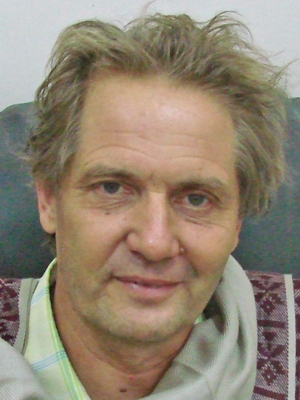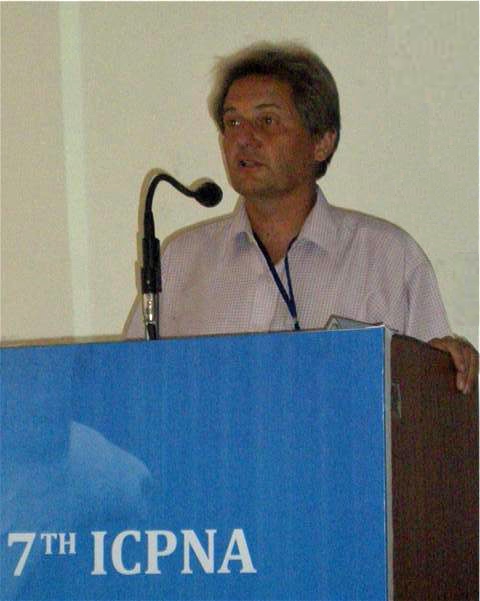
7th INTERNATIONAL CONFERENCE ON PEACE AND NONVIOLENT ACTION
7th ICPNA, Jaipur, November 10 to 14, 2008
5th Plenary Session
12.11.2008
 Even though our world is very far from an ideal world, we should also see that much has already been accomplished in the field of ethics. Two centuries ago slavery was normal all over the world. Cannibalism even flourished among some cultures. Women had no rights but to serve their husbands. I was told that even long before television violence was invented and before the days of modern weaponry there was so much fighting in Rajasthan that ‘there is no stone in Rajasthan to which no human blood sticks.’ Inflicting war, as well as hunting and killing animals, was a universal hobby among kings and the so-called ‘Higher of ‘noble’ classes. In Askok Banker’s Prince of Dharma - a retelling of the Ramayana, playing many thousands of years ago in the days of king Dasaratha, I read that their had been a period of peace for 22 years at that time, the longest period even in Aryan history. I don’t know if this is scientific fact, but it conveys the idea.
Even though our world is very far from an ideal world, we should also see that much has already been accomplished in the field of ethics. Two centuries ago slavery was normal all over the world. Cannibalism even flourished among some cultures. Women had no rights but to serve their husbands. I was told that even long before television violence was invented and before the days of modern weaponry there was so much fighting in Rajasthan that ‘there is no stone in Rajasthan to which no human blood sticks.’ Inflicting war, as well as hunting and killing animals, was a universal hobby among kings and the so-called ‘Higher of ‘noble’ classes. In Askok Banker’s Prince of Dharma - a retelling of the Ramayana, playing many thousands of years ago in the days of king Dasaratha, I read that their had been a period of peace for 22 years at that time, the longest period even in Aryan history. I don’t know if this is scientific fact, but it conveys the idea.
Nowadays, inside Europe and India, more than 60 years have been almost without war, and in America for more than a century. There is mainly peace in South America and the greater part of Asia. In our days the only sad exception to an overall strive to peace is Africa. But there too it will come, thanks to growing international awareness and better government. In the international tragedies such as the Iraq war, even the aggressive, now outgoing American president of America sought to use precision weapons to avoid inflicting more human suffering than absolutely necessary within the framework of his aims..
Even in the time when the Gatha’s of Zarathustra were written the earth was crying because of human misuse, in the Persian Desatir animal rights were defended and that in the days of Plato 2500 years ago deforestation was discussed as a problem. Despite the quantity of violence that the Holly- and Bollywoods like to present us, it is thanks to film and television that the larger part of the world’s community has become aware of the sufferings of wars and environmental destruction. The first Truth of the Buddha is: There is Suffering. He also said there is a root cause to all suffering and that this root cause can be overcome.
Today we have terrorists, as we always had. We have thieves, murderers, robbers, preachers of war and violence as we ever had. Probably we will have them always, perhaps increasingly so. Our great problem is the power and scale and quantity of modern weapons. We have more environmental destruction and more indulgence in physical comforts than ever in history.
Thanks to the great spiritual teachers who guided humankind through its mental or manasic evolution, such as the many Tīrthaṁkara’s, Buddha’s, Zoroasters, Quetzalcoatls, Christs, Prophets and great Theosophists, we have time and time again been given the fundamental Great Thoughts of Nonviolence and Universal Brotherhood.
 There is no lack of spiritual information. There is no lack of goodwill. Thousands upon thousands of charity organizations, non-violence and peace initiatives, environmental and animals care groups and humane education systems have risen the last one-and-a-half century with the speed of mushrooms coming up from an autumn soil.
There is no lack of spiritual information. There is no lack of goodwill. Thousands upon thousands of charity organizations, non-violence and peace initiatives, environmental and animals care groups and humane education systems have risen the last one-and-a-half century with the speed of mushrooms coming up from an autumn soil.
We have to make use of and stimulate this grant thought stream which is now moving the better part of humanity. Very, very much is left to be done in our and coming generations, and much we will accomplish.
Three terms, Nonviolence, Altruism and Universal Brotherhood should more and more became the mantra of our global culture, of course not by power and pressure, but chosen voluntary by the people of all cultures from their heart.
We can help by entering these subjects in our school curriculums, in the form of theory as well as practice. Most children, including the smallest have genuine and deep feelings about ethics and justice. Their natural energies should of course not be suppressed. But children need good guidance and good examples, just as humanity needs that guidance of the enlightened beings. The whole cosmos is an ever moving interplay of forces and striving towards evolving into higher planes of consciousness. A process so grand that we can not expect which can not go without clashes. But we do it as good we can: Every school and university, and also adult learning programs should include lessons on nonviolence, the philosophical and practical meaning of universal brotherhood which even encompasses terrorists - who after all, just as we, strive after a high goal, distorted as their ways may be - and in their genuine goodness of their souls or jīvas we should help them. We don’t need weapons of mass destruction to answer terrorists. We need to understand their deeper psychological and religious motivations from an anekāntic approach, and so help them to become aware of their own heart. Terrorists are our brothers in the sense that they show us all that the world is still far from perfect. They just manifest and feed on the evil that is the hearts of us, including myself and all of you. Not many people in the world are totally corrupt and evil and unchangeable - though their will always be a few.
Children and adolescents should be taught to practice compassion and altruism towards each other. They should be made aware that they are a positive and inseparable part of human culture of which is universal in time as in space, on and that each individual is a part of the history and the future, living and thinking and acting in the here and the now on this globe in this century. On the levels of higher of education Ethics, universal philosophy and peace-directed politics should become part of their programs. Nonviolent conflict resolution.
Universal brotherhood of all creatures, altruism, unselfishness, compassion, respect and nonviolence will then form the heart mantram of the centuries to come - and thus we will accomplish much of Acharya Mahapragya’s ideals and those of other great souls.
Thank you
 Dr. Rudi Jansma
Dr. Rudi Jansma